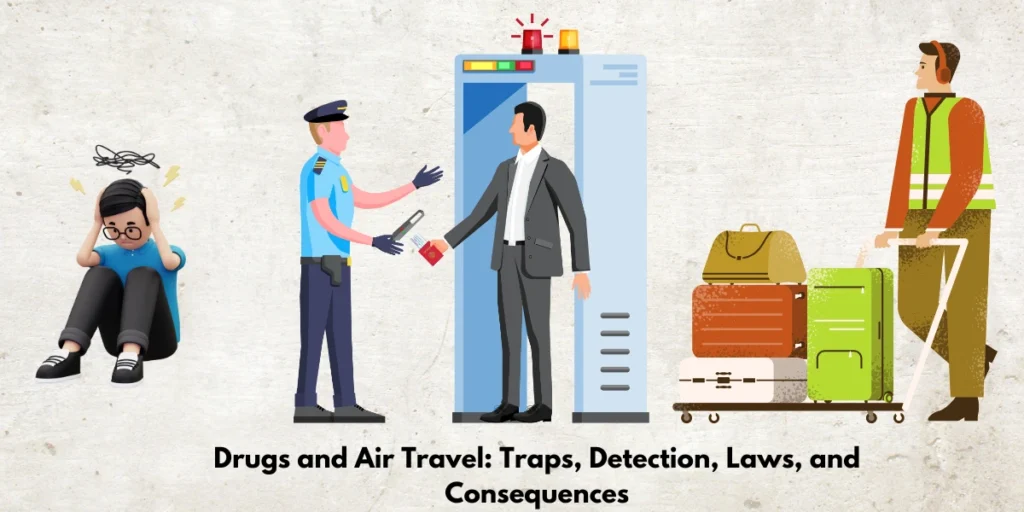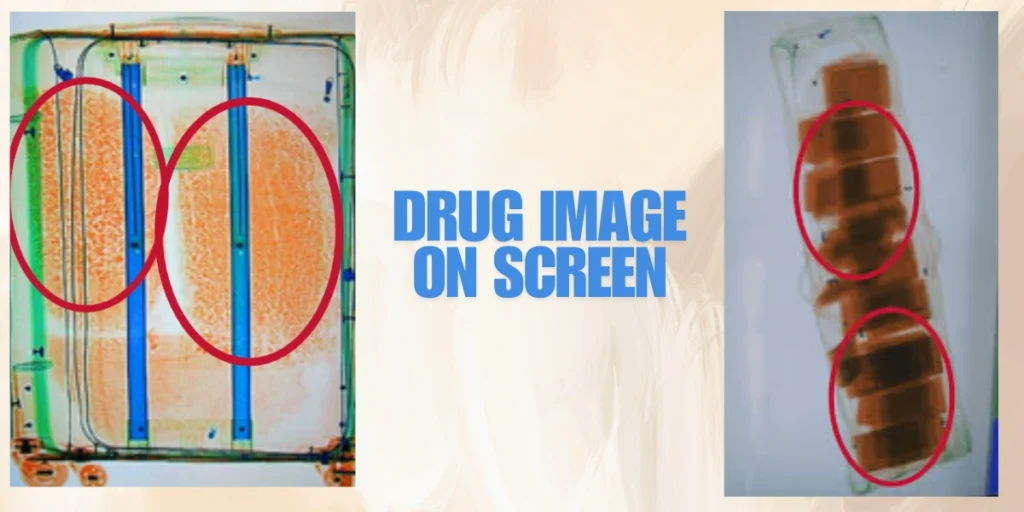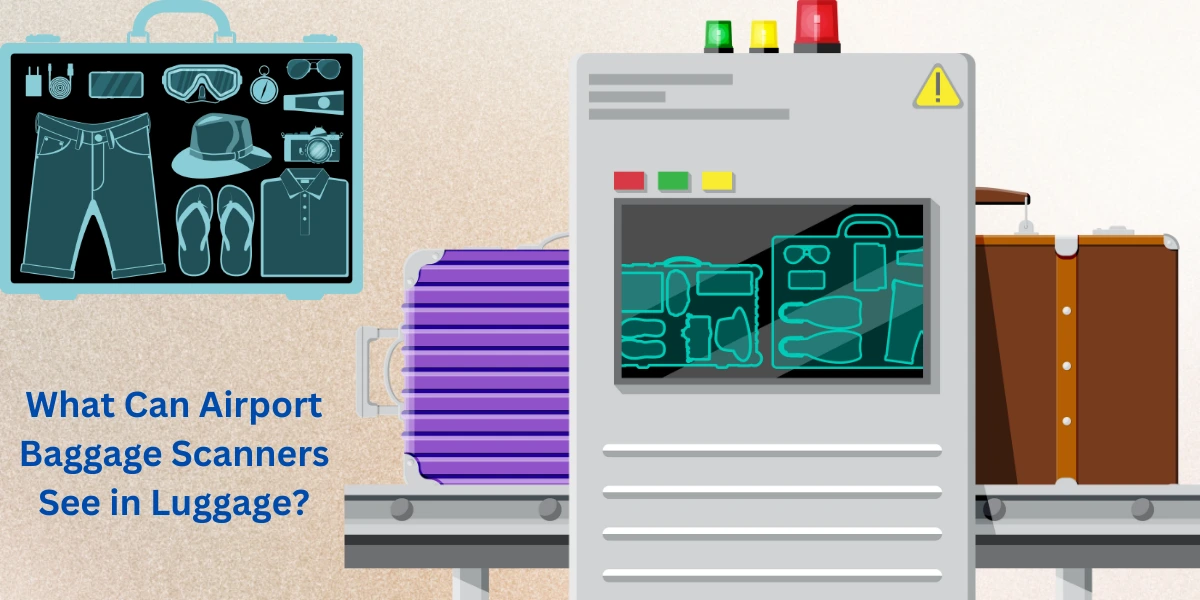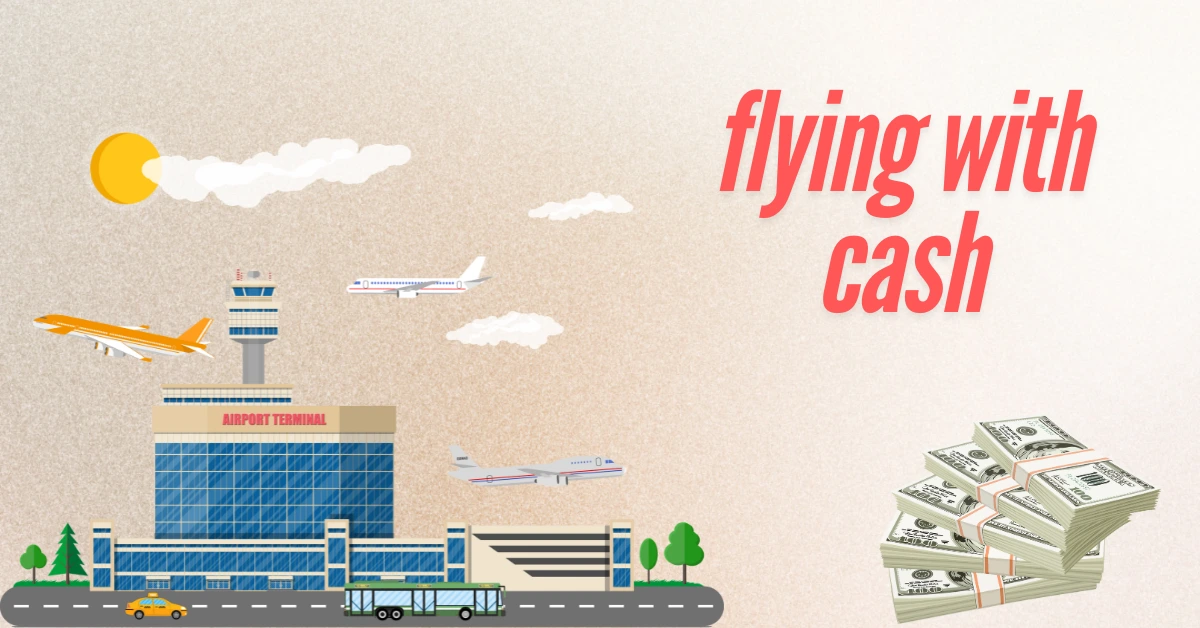Drugs and Air Travel: Traps, Detection, Laws, and Consequences Explained
Published: 29 Nov 2024
From my experience, air travel is always exciting, but it also comes with some serious risks—like getting caught up in drug-related problems at the airport. It’s more common than you’d think, and staying informed can make all the difference.

Trust me, these moments are heartbreaking and can happen to anyone. In this article, I will point out all the possible risks and traps at the airport. I will also share practical tips to help you avoid risky situations and keep your trip stress-free.
Can Airport Scanners Detect Drugs in the Luggage?
It might surprise you, but the fact is that airport scanners are not specifically designed to detect drugs. However, the operators are skilled enough to identify suspicious shapes, densities, or materials for further inspection.
For example, if a scanner operator detects something dense, oddly packed, or hidden, they flag the bag as suspicious. This may involve opening the bag for manual inspection, swabbing for drug residues, or using advanced tools for a closer examination.
Image of Drugs on Airport X-Ray Machines

- Appearance on X-Ray Machines:
- Drugs, being organic materials, are less dense compared to metals.
- They often appear in orange because X-ray machines use color coding to differentiate densities.
- Material Composition of Drugs:
- Organic Basis: Most drugs are composed of elements like carbon (C), hydrogen (H), oxygen (O), and sometimes nitrogen (N).
- Examples:
- Cocaine: Composed of carbon, hydrogen, and oxygen (C17H21NO4).
- Heroin: Contains carbon, hydrogen, nitrogen, and oxygen (C21H23NO5).
What are Drug Detection Methods at Airports
Let’s discuss how advanced tools and well-trained professionals detect drugs at airports!
How do airport scanners detect drugs in luggage?
- X-Ray Scanners: These machines look inside your luggage for anything suspicious—like hidden compartments or unusual shapes.
- CT Scanners: These are like X-rays on steroids! They give a 3D image of your bag’s contents, making it hard to hide anything.
- Millimeter-Wave Scanners: You know the machine where you stand with your arms up? That’s it. It checks for items concealed under clothing.
- Trace Detectors: These can pick up tiny traces of drugs on your luggage, clothes, or even hands.
Sniffer Dogs
- Trained dogs roam airports sniffing out drugs.
- They’re incredibly accurate and can detect even small amounts.
Security Observations
- Security staff are trained to watch travelers closely.
- Nervousness, sweating, or inconsistent answers can raise red flags.
Manual Inspections
- If something seems off, your bag could be opened for a closer look.
- Sometimes, you might even be asked to go through a pat-down or further questioning.
Airports are like high-tech detectives—they leave no stone unturned to catch anything suspicious. Staying informed helps you avoid unnecessary stress while traveling!
Tips to Stay Safe and Avoid Suspicion
Here are some easy ways to keep yourself safe and steer clear of unnecessary attention at the airport:
1. Pack Smart
- Keep your bag organized to avoid raising suspicions during scans.
- Follow airline rules for items like liquids and electronics.
2. Secure Your Luggage
- Use TSA-approved locks to prevent tampering.
- Label your bags with your name and contact information.
3. Stay Calm and Polite
- Cooperate with security checks and answer questions clearly.
- Avoid arguing or making jokes about prohibited items.
4. Keep Your Belongings Close
- Never leave your luggage unattended, even for a moment.
- Watch your bags during busy moments like check-in and boarding.
5. Dress Appropriately
- Avoid wearing excessive metal jewelry or clothing with lots of pockets, which can delay screenings.
6. Know What’s in Your Bag
- Pack your own luggage and don’t accept items from others.
- Check for anything unusual before you check in or board.
7. Be Aware of Your Behavior
- Avoid looking nervous or acting suspicious, as it can attract attention.
- Stay confident and composed throughout the airport process.
With these tips, you’ll sail through security without any issues and enjoy a stress-free journey!
Airport Drug Laws and Regulations
Let’s get real—drug laws at airports are strict, and they can vary wildly depending on where you’re flying. Here’s the lowdown on what you need to know.
Global Perspective on Drug Laws
- Some places, like Southeast Asia and the Middle East, have zero-tolerance policies with harsh penalties, including the death penalty for trafficking.
- Even carrying prescription medications can get you in trouble if they’re banned at your destination.
- Proactive Tip: Always research the drug laws of the country you’re visiting before traveling.
What Happens If Drugs Are Found?
If drugs are found, here’s what usually happens:
- The airport security force will detain you for questioning.
- Your luggage will be thoroughly searched for additional substances.
- Police or the anti-narcotics department will be notified for further legal action against the suspect.
- If drugs are confirmed to be yours, you may be arrested on the spot.
- Legal action will follow, which could include fines, imprisonment, or both.
- Your travel plans will be immediately canceled, and you may face a travel ban.
- If abroad, contacting your country’s embassy can provide legal and consular assistance.
Innocent Travelers and Drug Smuggling Traps
Let’s be honest—airports can be intimidating, especially when you hear stories about innocent people getting caught up in drug smuggling traps. It’s scary, but don’t worry! I’ll help you understand how these things happen and how you can avoid them.
How Innocent People Get Trapped
Sometimes, innocent travelers like you and me can get caught up in drug smuggling schemes without even realizing it. Here is how this happens and what we can do to protect ourselves.
1. Accepting Items From Strangers
If someone asks you to carry a bag or package for them, never agree. Even if they seem trustworthy, you can’t know what’s inside—and you’ll be held responsible.
2. Tampered Luggage
Your bags can be tampered with when you’re not watching, like at a hotel or in transit. Always inspect your luggage before checking it in or leaving it unattended.
3. False Promises or Coercion
Some people may lure you with money, gifts, or favors, convincing you it’s “safe” to carry something for them. Don’t fall for it. If you’re pressured, report it immediately.
4. Borrowed or Secondhand Bags
Using borrowed or secondhand luggage without checking it is risky. Hidden compartments or leftover items can lead to trouble at security.
5. Distracted Moments
Being preoccupied at the airport—whether on a call or in a rush—can make you a target. Always keep an eye on your belongings.
6. Baggage Mix-Ups
Accidentally picking up someone else’s similar-looking bag can land you in a tough spot. Double-check luggage tags to ensure it’s yours.
7. Hidden Compartments
Criminals may insert drugs into hidden compartments in your bag without your knowledge. Inspect all zippers, linings, and seams before traveling.
8. Offers for “Help”
If someone insists on helping you pack or carry your bag, politely decline. This could be an attempt to plant illegal items.
9. Gifts From Acquaintances or Friends
Even if someone you know gives you a “gift” to carry, inspect it carefully. It could unknowingly contain drugs, and you’ll still be held accountable. Trust, but verify!
10. Leaving Luggage Unattended
Leaving your bag alone for just a moment—whether in the airport lounge or at a café—can be enough time for someone to tamper with it. Always keep your luggage within arm’s reach.
The key here is awareness. With just a little extra vigilance, we can steer clear of these traps and travel stress-free!
How to Protect Yourself and Your Luggage
You can stay safe and avoid complications if you follow these simple tips. Let’s break it down.
1. Never Accept Items From Strangers
Even if someone seems friendly or in need, politely decline if they ask you to carry something. It’s not worth the risk.
2. Use Strong Locks
Secure your luggage with strong locks to prevent tampering. This keeps your bags protected.
3. Inspect Your Bags Regularly
Before checking in, opening your luggage, or boarding a flight, inspect all zippers, seams, and compartments for anything unusual.
4. Keep an Eye on Your Belongings
Whether at the airport, hotel, or a taxi, never leave your luggage unattended. Stay alert and ensure your bags are always within sight.
5. Tag and Identify Your Luggage
Use luggage tags with your contact information and add a unique marker, like a ribbon or sticker, to avoid baggage mix-ups.
6. Pack Your Bags Yourself
Always pack your own luggage to ensure you know exactly what’s inside. Avoid sharing packing responsibilities with others.
7. Avoid Borrowed or Secondhand Bags
If you must use a borrowed or secondhand suitcase, thoroughly inspect it for hidden compartments or leftover items before traveling.
8. Stay Vigilant in Crowded Areas
Busy airports are hotspots for distractions. Stay alert, especially during check-in, security screening, or baggage claim.
9. Double-Check After Security
After your bags are scanned, make sure no one swaps or tampers with your luggage while you’re distracted.
10. Report Suspicious Behavior
If someone is acting suspiciously around you or your luggage, report it to airport staff immediately. Better safe than sorry!
Traveling can be smooth and stress-free when you’re proactive about your safety. Let’s keep our adventures enjoyable and trouble-free!
What to Do If You Suspect a Trap
- Stay calm and avoid panicking.
- Refuse to accept or carry any items you’re unsure about.
- Inform airport security or staff immediately about your concerns.
- If coerced or threatened, discreetly alert nearby authorities.
- Avoid confronting the person you suspect of setting the trap.
- Stay vigilant and follow airport protocols to ensure your safety.
FAQs: Drugs and Airport Security
Can airport scanners detect drugs in my bum?
- Yes, full-body scanners, especially millimeter-wave scanners, can detect unusual objects, including drugs, hidden inside the body.
- These scanners work by creating a detailed outline of the body, highlighting any anomalies or foreign objects.
- If something suspicious is detected, security may conduct a more thorough search, including pat-downs or additional questioning.
- In serious cases, law enforcement can request a medical examination or use advanced imaging to confirm their suspicions.
What happens to drugs seized at airports?
- Drugs found at airports are immediately confiscated by security.
- They are securely stored as evidence for further legal action.
- Law enforcement agencies take over the investigation, identifying the source and intent.
- Once the legal process is complete, the drugs are destroyed under strict supervision.
What happens if your checked bag is searched?
- If your checked bag is inspected, security places a notification slip inside to inform you.
- The search is usually performed in your absence unless you’re asked to be present.
- If prohibited or illegal items, like drugs, are found, airport security alerts law enforcement.
- If cleared, the bag is resealed and forwarded to your flight without delay.
Do airports look for drugs in checked luggage?
- Yes, airport scanners are programmed to detect unusual items, including drugs, in checked luggage.
- Advanced scanning technology can identify suspicious shapes or densities during screening.
- Bags flagged by the scanner are opened for manual inspection by security officers.
- If drugs are discovered, the incident is escalated to law enforcement for further action.
Are there machines that can detect drugs?
- Yes, X-ray scanners detect anomalies by analyzing the density of items in bags.
- Chemical swabs test for traces of drug particles on surfaces, including luggage and hands.
- Ion mobility spectrometers identify specific drug residues with high sensitivity.
- These machines are regularly updated to keep up with new smuggling methods.
Final Words
Let’s wrap this up with a quick recap of what we’ve covered.
- Airports take drug detection very seriously, using advanced tools and trained staff.
- Innocent people can get caught up in drug smuggling traps, so it’s crucial to pack smart and stay alert.
- Legal trouble at an airport can have severe consequences, but knowing your rights and contacting the right people can help you navigate the situation.
Traveling doesn’t have to be nerve-wracking. With a little preparation and awareness, you can fly confidently and enjoy your journey!

- Be Respectful
- Stay Relevant
- Stay Positive
- True Feedback
- Encourage Discussion
- Avoid Spamming
- No Fake News
- Don't Copy-Paste
- No Personal Attacks

- Be Respectful
- Stay Relevant
- Stay Positive
- True Feedback
- Encourage Discussion
- Avoid Spamming
- No Fake News
- Don't Copy-Paste
- No Personal Attacks





